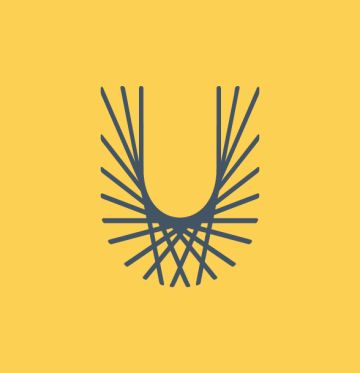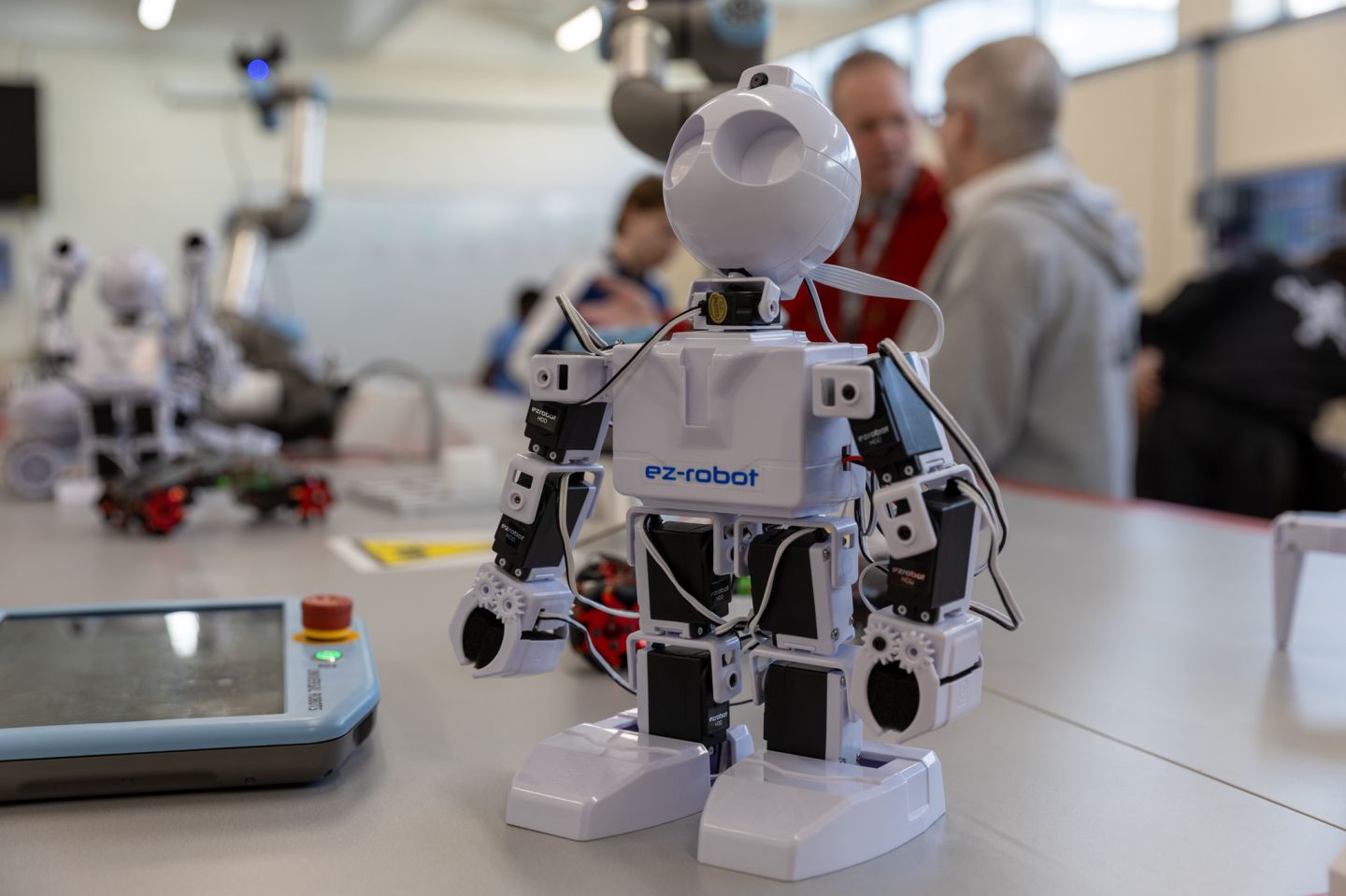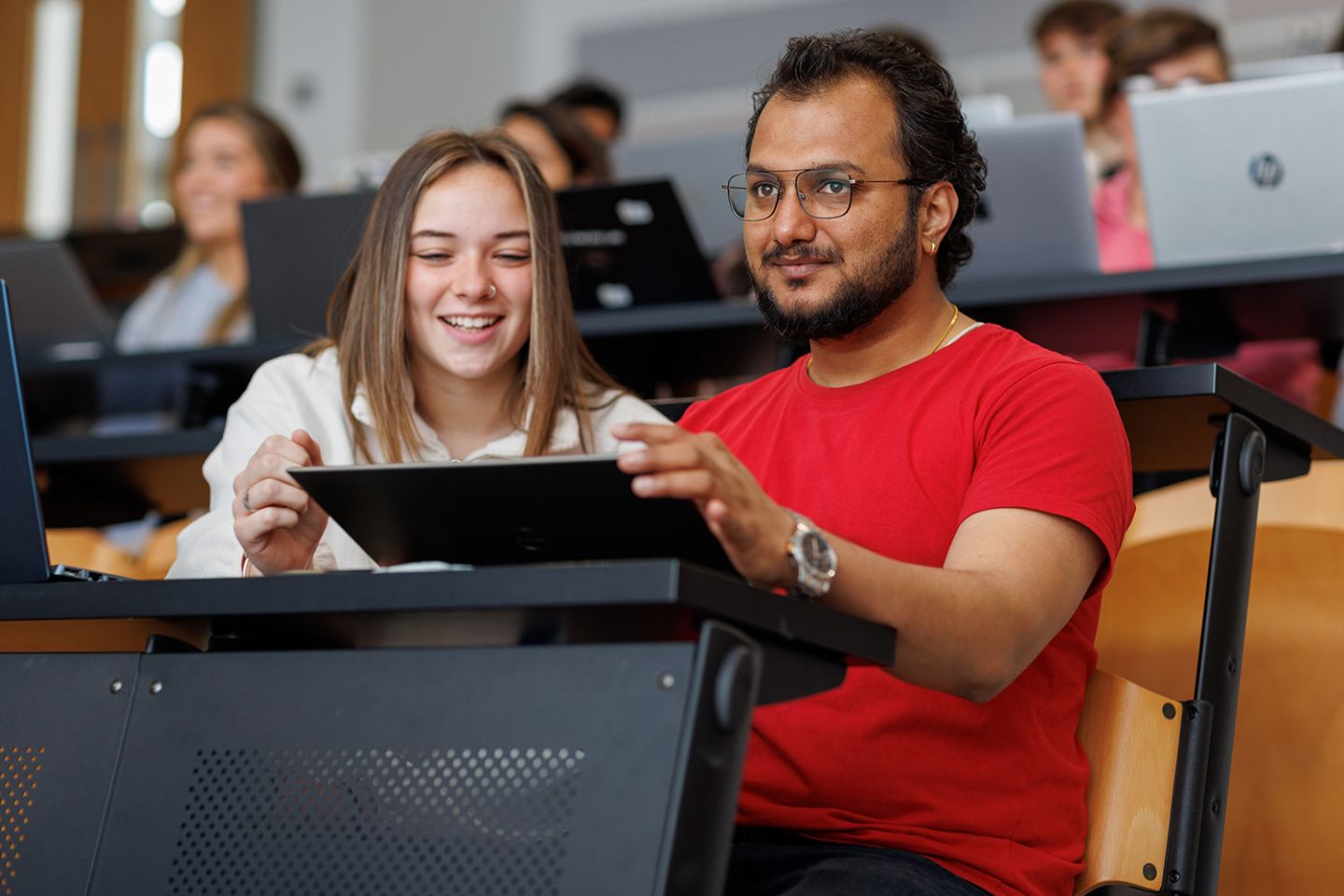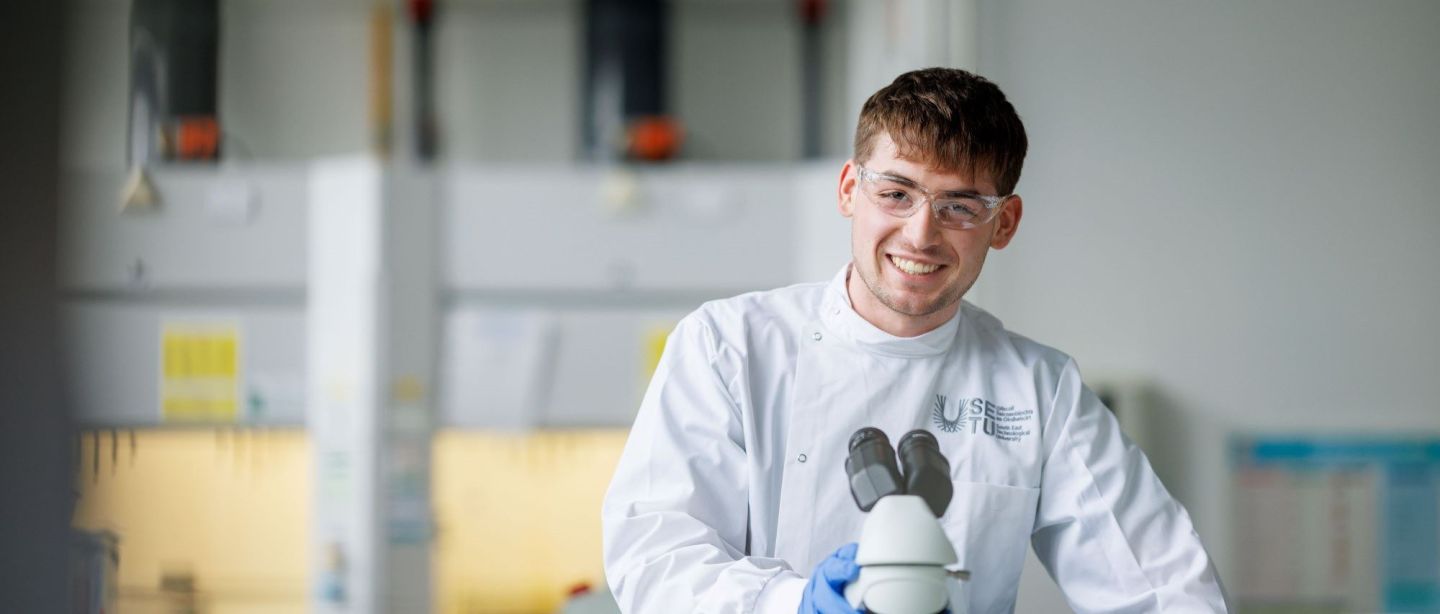Mechanical Engineering
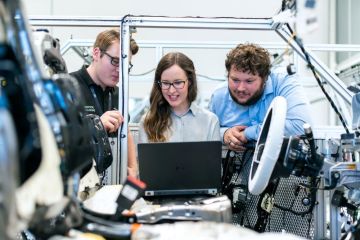
What is the Course about?
Mechanical Engineering is one of the most diverse of the engineering disciplines. It deals with the design and manufacture of everything, from small individual parts and devices like the inkjet nozzle, to large systems such as spacecraft. The role of a mechanical engineer is to take ideas from concept to physical reality. It requires specialist engineering knowledge combined with creative thinking, problem solving, team working and analytical skills.
Course Structure
This course equips graduates with the specialist knowledge and practical experience required to manage complete mechanical engineering processes, from product/project design to manufacturing output and commissioning. The course features extensive practical workshops and includes work placement in year 3 and a design project in year 4.
Is this course for you?
- Mechanical & Computer Aided Design
- Mechanical Processes & Systems
- Reverse engineering and component optimisation
If you are someone who is interested in these topics, then maybe this is the course for you.
Special Features:
- 40% class time on practical exercises in laboratories and workshops. Work placement in industry during semester 2 of year 3.
- Integrated instruction in computing and programming skills.
- Students of this course have been very successful in the Engineers Ireland Innovative Student of the Year Award, winning three times and runner up once in the past number of years.
- Use of industry standard design tools ANSYS and SOLIDWORKS.
- Well-balanced mixture of theory and practical elements with an extensive design project in Year 4.
- Learn and apply problem solving skills to real world problems.
- Exit Awards:
- Higher Certificate in Engineering - Mechanical Engineering (NFQ Level 6) after Year 2.
- Bachelor of Engineering - Mechanical Engineering - (NFQ Level 7) after Year 3.
Year 1
| Semester 1 | Semester 2 |
|---|---|
| Computer Aided Drafting (M) | Engineering Mathematics 2 (M) |
| Technical Communications (M) | Mechatronics 2 (M) |
| Engineering Mathematics 1 (M) | Dynamic Mechanics (M) |
| Mechatronics 1 (M) | Fluid Mechanics 1 (M) |
| Static Mechanics (M) | Workshop Practices (M) |
M is a mandatory subject - E is an elective subject
Year 2
| Semester 3 | Semester 4 |
|---|---|
| Manufacturing and Computer Aided Design (M) | Mechatronics 4 (M) |
| Engineering Mathematics 3 (M) | Thermodynamics 1 (M) |
| Mechatronics 3 (M) | Engineering Mathematics 4 (M) |
| Statics 2 (M) | Materials Science in Engineering (M) |
| Dynamics 2 (M) | Dynamics 3 (M) |
M is a mandatory subject - E is an elective subject
Year 3
| Semester 5 | Semester 6 |
|---|---|
| Mechatronics 5 (M) | Work Placement (E) |
| Advanced Manufacturing (M) | Industrial Studies (E) |
| Fluid Mechanics 2 (M) | Development Project (Engineering) (E) |
| Engineering Mathematics 5 (M) | Process Instrumentation (E) |
| Mechanics of Materials (M) | Introduction to Systems and Control (E) |
| Advanced PLC's (E) |
M is a mandatory subject - E is an elective subject
Year 4
| Semester 7 | Semester 8 |
|---|---|
| Advanced Simulation (M) | Sustainable Energy (M) |
| Thermodynamics 2 (M) | Dynamics Vibration Control (M) |
| Materials Engineering (M) | Research Project (Engineering) (M) |
| Control System Design (M) | Quality in Manufacturing (M) |
| Professional Studies (M) |
M is a mandatory subject - E is an elective subject
What are the minimum entry requirements?
- 2 subjects: H5
- 4 subjects: O6/H7
- English or Irish: O6/H7
- Mathematics: O6/H7
What follow-on study opportunities are available?
Graduates can progress to postgraduate study at either Masters (NFQ Level 9) or Doctoral level (NFQ Level 10) at SETU Carlow or another third level institution.
What exemptions will I receive?
-Notes
-What will I be able to do when I finish the course?
Mechanical engineers work in a diverse range of industries including: automotive; aerospace; biotechnology; computers and electronics; microelectromechanical systems; energy conversion; environmental control; automation and manufacturing. Graduates will have a variety of career options open to them such as working in industry, government, consultancy or research centres.
Course Leader
